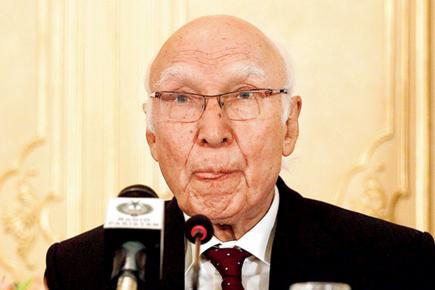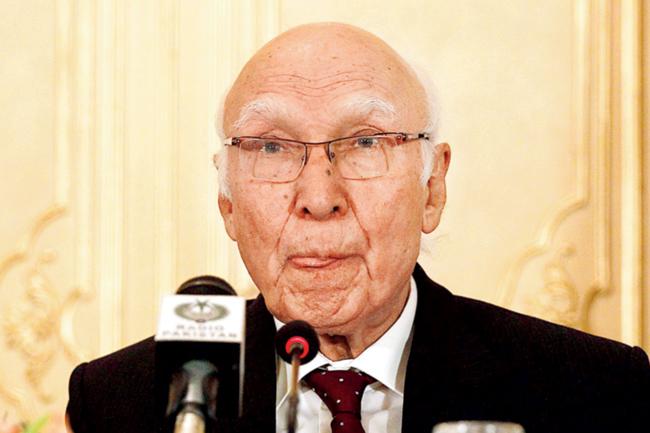Talks, no talks... operation, half-hearted operation, no operation…end result: confusion

 Talks, no talks…operation, half-hearted operation, no operation…end result: confusion. Despite the federal cabinet’s approval of a national security policy and air strikes against suspected TTP hideouts in the tribal areas, there is still confusion regarding the question of talks with the TTP and/or a military operation in North Waziristan.
Talks, no talks…operation, half-hearted operation, no operation…end result: confusion. Despite the federal cabinet’s approval of a national security policy and air strikes against suspected TTP hideouts in the tribal areas, there is still confusion regarding the question of talks with the TTP and/or a military operation in North Waziristan.
ADVERTISEMENT
Prime Minister Nawaz Sharif’s National Security Adviser Sartaj Aziz says the Tehrik-i-Taliban Pakistan (TTP) is not serious about peace talks while Interior Minister Chaudhry Nisar Ali Khan says the government would still prefer the route of peace talks with the TTP.

Mixed signals: Pakistan’s National Security Adviser Sartaj Aziz says the Tehrik-i-Taliban Pakistan (TTP) is not serious about peace talks, while Interior Minister Chaudhry Nisar Ali Khan says government would still prefer the route of peace talks
There are those who argue that the military wants an operation in North Waziristan but is waiting for a nod from the government while the government is still waiting for a parliamentary consensus on the issue.
In a strong democratic country, this argument would have been valid but in a country where the military is the most powerful institution, this should be taken with a pinch of salt.
Pakistan’s military did not wait for a nod from the civilians before launching a military operation in East Pakistan (now Bangladesh) and it certainly does not care what the civilians have to say about the military operation in Balochistan.
This is not to say that the army is not pushing for an operation but we will have to wait and see what kind of an operation it would be.
Others say the air strikes are only meant to weaken the TTP to an extent so that when it starts negotiating with the government again, the state is in a powerful position to make them agree to its terms. This seems a bit farfetched given that the TTP does not recognise Pakistan’s constitution and is not willing to lay down arms.
Then there are those who say that the PML-N government is afraid of launching an operation in the tribal areas because it fears there will be a strong backlash in the form of terrorist attacks in Punjab. This seems more logical given that Punjab has so far been the least affected province.
Terrorists have not shown their mighty wrath in the province because the state has largely turned a blind eye to the activities of banned terrorist outfits in the province.
Punjab Law Minister Rana Sanaullah, in his recent statements, has alluded to the fact that Punjab is on high alert because of the imminent operation in North Waziristan and a crackdown of sorts is taking place in the province.
Blowback in Punjab in inevitable but this should not deter the government from taking action.
We saw in the 2013 elections how Punjab was the only province where the election campaign was rather uneventful and both the PML-N and Imran Khan’s Pakistan Tehreek-e-Insaf (PTI) remained unscathed by violence. On the other hand, the Pakistan People’s Party (PPP), the Awami National Party (ANP) and the Muttahida Qaumi Movement (MQM) were targeted by the TTP and its affiliates. Despite being targeted by the Taliban and consequent setbacks in the elections, these three parties have remained steadfast in calling out the terrorists.
The PML-N and PTI should learn some lessons and understand that mealy-mouthed response to terrorist attacks is not what this country needs. Pakistan has already suffered a great deal at the hands of terrorists. Now the state needs to tackle this menace at any cost.
The writer is a Pakistani journalist. Reach her at mehmal.s@gmail.com
 Subscribe today by clicking the link and stay updated with the latest news!" Click here!
Subscribe today by clicking the link and stay updated with the latest news!" Click here!






